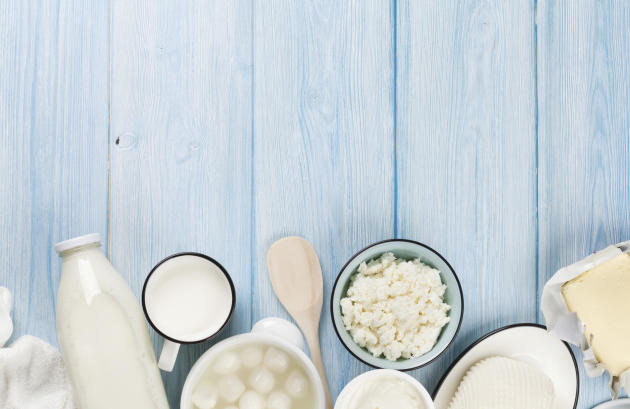Milk and cheese were once considered the cornerstones of a healthy diet
, but the tables have turned on dairy.
In recent years, more and more Australians have decided to avoid dairy products. For some people, this shift has been rooted in concerns about, or experience of, lactose intolerance. For others, headlines linking dairy to everything from acne to cancer have soured their taste for it. Supermarket shelves now host a wide array of non-dairy, plant-based alternative milks, such as almond, rice, and coconut milk. But is the angst about dairy warranted?
Natural or not?
One argument that frequently comes up about dairy is that it is 'unnatural' to eat it, based on the fact that humans are the only species that consume the milk of another animal. It's true that, prior to the agricultural revolution, adult humans could not digest milk. However, science has shown that our genes have subsequently evolved with some populations adapting to dairy consumption – although 75 percent of the world's population still remains unable to digest it. Whether this partial evolution indicates that dairy consumption is 'natural' remains debatable.
Dairy is known to stimulate the release of insulin and IGF-1 (Insulin-like Growth Factor 1). IGF-1 has been linked with acne, and evidence suggests eliminating dairy may benefit those with this skin condition. IGF-1 is also associated with the risk of certain cancers, such as prostate cancer, although evidence for this is still considered weak and inconsistent.
Then there is lactose intolerance, which affects approximately 10 percent of Australians. Lactose is the sugar found in milk, and intolerance occurs when you don't produce enough lactase, the enzyme needed to break down milk so it can be absorbed. This causes the lactose to ferment in the digestive system producing bloating, cramping, gas, and diarrhoea. Casein, another milk protein, will also cause digestive problems in some people, and anyone with irritable bowel syndrome may find dairy consumption exacerbates their symptoms.
The good news is that, if they are tolerated, dairy products can be highly nutritious. Simone Austin, accredited practising dietician and Spokesperson for the Dieticians Association of Australia, says: “They provide a good source of dietary protein, which helps with satiety - the feeling of fullness - plus calcium, iodine, vitamin A, vitamin D, riboflavin, vitamin B12, and zinc. They also contain electrolytes - sodium and potassium - making milk a good rehydrating fluid.” Fermented dairy products like kefir and yoghurt contain probiotics, which have a wealth of beneficial properties for immunity and digestive health.
And of course there is calcium: the most abundant mineral found in dairy, and the main reason why dairy consumption is perceived to be so important, for healthy teeth and bones. “The calcium in dairy foods is readily absorbable and in a convenient form for the body to use,” adds Austin. “Sources for those who don't eat dairy include calcium-enriched soy drinks, and fish with edible bones such as sardines. Small amounts of calcium are also found in egg yolks, green leafy vegetables, almonds, tofu, and sesame seeds.”
So, should we give up dairy? The general consensus is that if an individual can tolerate it, there is no compelling evidence that dairy should be avoided, and that it actually has an array of nutritional benefits. However, this is an individual choice, and for anyone choosing to avoid dairy, it is important that they obtain adequate protein and calcium from other foods.
(natureandhealth.com.au)
Fuente: www.natureandhealth.com.au
